Hearing Loss in Adults
Hearing Loss in Adults
Hearing loss is a partial or complete inability to hear sounds. It can be caused by a variety of factors including genetic conditions, aging, injury or trauma to the ear, exposure to loud noises or certain medications. Depending on the severity, hearing loss can lead to difficulties in communication and social interaction. Treatment options may include hearing aids, cochlear implants or other assistive devices, or in some cases, surgery. Regular hearing tests can help detect hearing loss early and prevent further deterioration.
Some people may not want to admit they have trouble hearing. Hearing problems that are ignored or untreated can get worse. If you have a hearing problem, see your doctor. Hearing aids, special training, certain medications, and surgery are some of the treatments that can help.
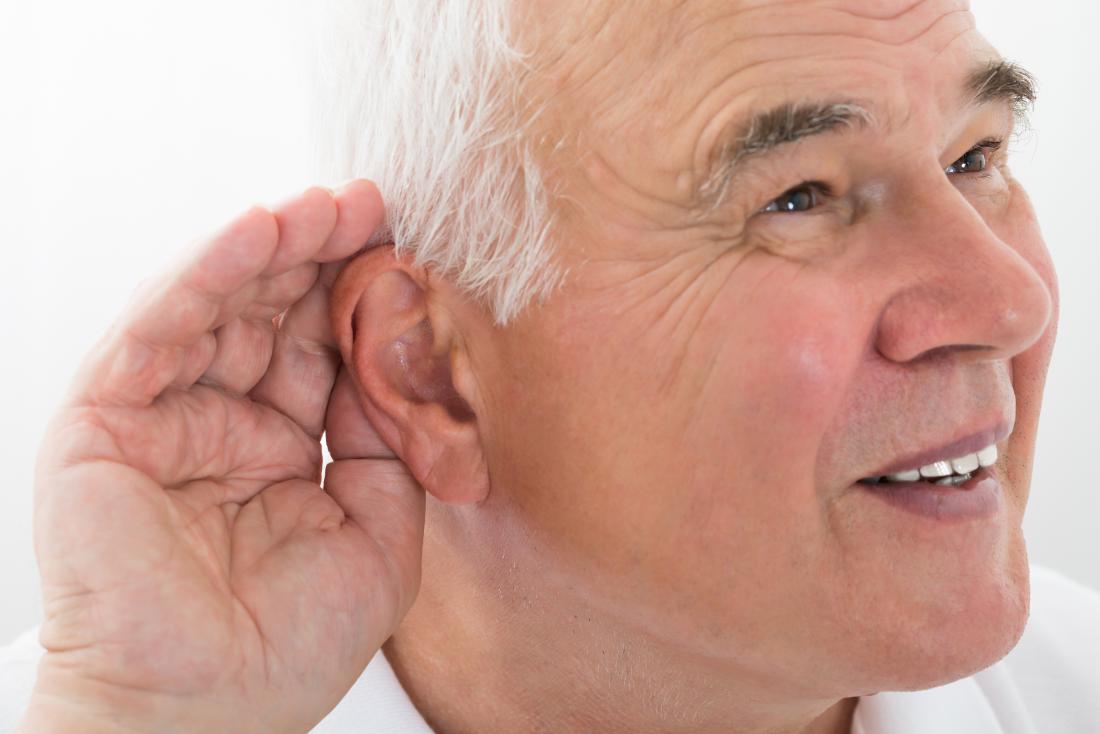
What are the Types of hearing loss
There are three main types : conductive hearing loss, sensorineural hearing loss, and mixed hearing loss.
Conductive
occurs when sound waves are not able to reach the inner ear. This can be caused by blockages in the ear canal, damage to the eardrum, or problems with the tiny bones in the middle ear.
This can be caused by a variety of factors, including: Earwax buildup: A buildup of earwax can block the ear canal and prevent sound from reaching the eardrum.Middle ear infection: An infection in the middle ear can cause inflammation and fluid buildup, which can prevent the middle ear bones from moving properly and transmitting sound.Perforated eardrum: A hole or tear in the eardrum can prevent sound from being transmitted to the middle ear.Otosclerosis: This is a condition in which the middle ear bones become fused together, which can prevent sound from being transmitted to the inner ear.
Congenital abnormalities
Some individuals are born with abnormalities in the outer or middle ear that can cause conductive hearing loss.
Symptoms of conductive hearing loss can include muffled or distorted sound, difficulty hearing in noisy environments, and a feeling of fullness or pressure in the ear. Treatment options for conductive hearing loss depend on the underlying cause and may include earwax removal, antibiotics to treat middle ear infections, surgery to repair a perforated eardrum or correct abnormalities in the middle ear bones, or the use of hearing aids to amplify sound.
Sensorineural
occurs when there is damage to the inner ear or the nerve pathways that transmit sound from the inner ear to the brain. This type of hearing loss is usually permanent and can be caused by aging, noise exposure, genetics, infections, or certain medications.
Sensorineural hearing loss occurs when there is damage to the inner ear or the auditory nerve that transmits sound signals from the inner ear to the brain. This type of hearing loss is typically permanent and irreversible, and it can be caused by a variety of factors, including:
Aging: As we age, the hair cells in the inner ear that are responsible for transmitting sound to the brain can become damaged or die, leading to hearing loss.
Exposure to loud noise: Exposure to loud noise, such as at work or through recreational activities, can cause damage to the hair cells in the inner ear.Genetics: Some individuals may inherit genes that predispose them to hearing loss.
Illness or disease: Illnesses such as meningitis, autoimmune diseases, and certain types of cancer can cause hearing loss.
Ototoxic medications: Some medications, such as certain antibiotics and chemotherapy drugs, can damage the hair cells in the inner ear.
Symptoms of sensorineural hearing trouble can include difficulty hearing speech or other sounds, ringing or buzzing in the ears (tinnitus), and difficulty hearing in noisy environments. Treatment options for sensorineural hearing loss may include the use of hearing aids or cochlear implants, which can help to amplify sound and improve hearing. In some cases, medication or surgery may be an option, depending on the underlying cause of the hearing loss.
Mixed hearing trouble
is a combination of conductive and sensorineural hearing loss. This means that there is a problem with both the transmission of sound through the outer or middle ear and the processing of sound by the inner ear or auditory nerve.Mixed hearing loss means that there is a problem with both the outer or middle ear (conductive hearing loss) and the inner ear or auditory nerve (sensorineural hearing loss).
Mixed hearing loss can be caused by a variety of factors, such as a combination of a congenital abnormality in the outer or middle ear and age-related sensorineural hearing loss, or a combination of noise-induced damage to the inner ear and a perforated eardrum.Symptoms of mixed hearing loss can include difficulty hearing speech or other sounds, as well as a feeling of fullness or pressure in the ear. Treatment options for mixed hearing loss depend on the underlying causes of the hearing loss and may include a combination of medical treatment, such as antibiotics or surgery for conductive hearing loss, and the use of hearing aids or cochlear implants for sensorineural hearing loss. In some cases, a bone-anchored hearing aid (BAHA) may be recommended for individuals with mixed hearing loss who are unable to wear traditional hearing aids
It’s important to consult with a healthcare professional if you suspect you may have hearing loss, as early detection and treatment can prevent further damage and improve your quality of life.
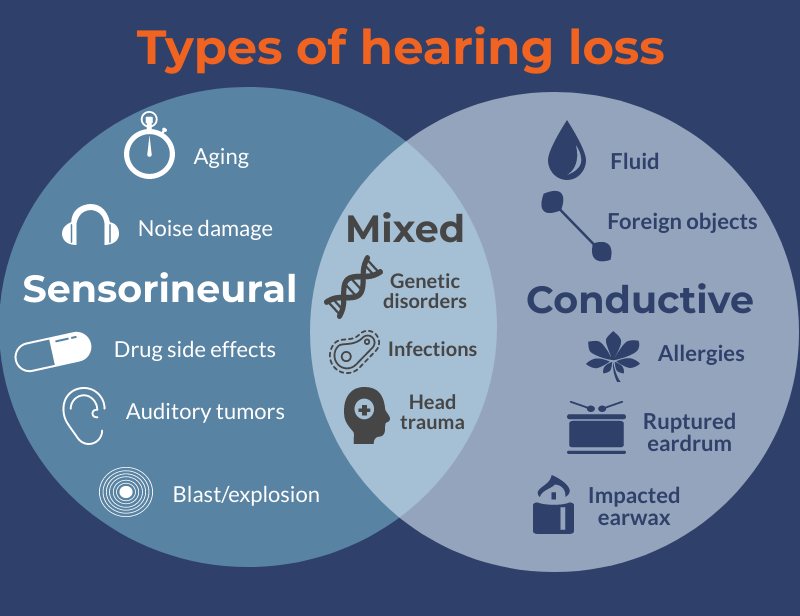
Main Causes of hearing problems
There are many causes , including:
- Aging: As we age, the hair cells in our inner ear can become damaged, leading to gradual hearing problems.
- Noise exposure: Exposure to loud noises, either over a short or long period of time, can damage the hair cells in the inner ear and lead to hearing loss.
- Genetics: Some types of hearing loss may be inherited from family members.
- Infections: Certain infections, such as meningitis or ear infections, can cause damage to the ear and lead to hearing loss.
- Trauma: Head injuries or other types of trauma can damage the ear and lead to hearing loss.
- Ototoxic medications: Some medications can be toxic to the ear and cause hearing loss.
- Tumors: Tumors that grow on the nerves or other parts of the ear can cause hearing loss.
- Diseases: Certain diseases, such as diabetes, cardiovascular disease, and autoimmune diseases, can lead to hearing loss.
- Wax buildup: Blockages of earwax in the ear canal can cause temporary hearing loss.
It’s important to speak with a healthcare professional if you suspect you may have hearing loss, as the cause can be determined through a hearing evaluation and appropriate treatment can be provided.
(Hearing loss in Adults )
Main Symptoms of hearing trouble
The main symptoms can include:
- Difficulty understanding speech, especially in noisy environments.
- Asking others to repeat themselves frequently.
- Turning up the volume on the television or radio to a higher level than others need.
- Straining to hear conversations.
- Difficulty hearing high-pitched sounds.
- Feeling like others are mumbling or not speaking clearly.
- Ringing, buzzing, or hissing sounds in the ears (tinnitus).
- Withdrawal from social situations because of difficulty hearing or understanding.
- Fatigue or stress from straining to hear.
Hearing Problems – how it affects people
Hearing problems can have a significant impact on people’s lives. Here are some ways it can affect individuals:
Communication
Hearing trouble can make it difficult to understand speech, especially in noisy environments. This can lead to miscommunication, frustration, and isolation.It can have a significant impact on communication, making it difficult for individuals to understand speech and other sounds. Here are some ways it can affect communication:
Difficulty understanding speech: Individuals with hearing loss may have difficulty understanding speech, particularly in noisy environments or when multiple people are talking at once.
Reduced vocabulary: Hearing loss can make it difficult to hear certain sounds, which can lead to difficulty with pronunciation and reduced vocabulary.
Communication breakdowns: Communication breakdowns can occur when individuals with hearing loss misinterpret words or phrases or miss important information in conversations.
Reduced confidence: Communication difficulties related to hearing loss can lead to reduced confidence in social situations and in the workplace.
Additionally, communication strategies such as speaking clearly, facing the individual when speaking, and using visual cues can also be helpful in improving communication with individuals with hearing loss.
Social interaction:
Hearing problems can make it hard to participate in social activities, leading to feelings of loneliness and social isolation.Hearing loss can have a significant impact on social interaction, making it difficult for individuals to communicate effectively with others. Here are some ways it can affect social interaction:
Misunderstandings: Hearing loss can make it difficult to hear certain sounds or words, leading to misunderstandings and miscommunications. This can be particularly problematic in social situations where clear communication is important.
Embarrassment: Individuals with hearing loss may feel embarrassed or self-conscious about their hearing difficulties, particularly in social situations where they may need to ask others to repeat themselves or speak louder.
Social withdrawal: Hearing loss can lead to social withdrawal, as individuals may feel isolated or excluded from social activities due to communication difficulties. This can lead to decreased social engagement and a decreased sense of social connectedness.
Strained relationships: Communication difficulties related to hearing loss can strain relationships with family, friends, and colleagues. This can lead to feelings of frustration, anger, and resentment on both sides.
Reduced quality of life: Hearing loss can have a negative impact on overall quality of life, particularly if it leads to social isolation and decreased engagement in meaningful activities.
It’s important to note that hearing aids, cochlear implants, and other assistive devices can improve communication and reduce the negative impact of hearing loss on social interaction. It’s important to seek treatment early to minimize the impact of hearing loss on social interaction and overall quality of life.
Mental and cognitive health:
Untreated hearing loss has been linked to depression, anxiety, and cognitive decline in older adults. Older people who can’t hear well may become depressed or withdrawn from others because they feel frustrated or embarrassed about not understanding what is being said. Studies also have shown that older adults with hearing loss have a greater risk of developing dementia than older adults with normal hearing.Hearing loss can have a significant impact on mental and cognitive health, particularly if it is left untreated. Here are some ways it can affect an individual’s well-being:
Depression: Hearing loss has been linked to an increased risk of depression. The social isolation and communication difficulties that can result from hearing loss may contribute to feelings of sadness and hopelessness.
Anxiety: Individuals with hearing loss may experience anxiety related to their ability to communicate effectively in social situations or to hear important information. This can lead to feelings of apprehension and nervousness.
Cognitive decline: Studies have suggested that untreated hearing loss may be associated with a higher risk of cognitive decline and dementia. This may be due to the brain’s increased effort to process sound or the decreased social stimulation that can result from hearing loss.Social isolation: Hearing loss can make it difficult to participate in social activities, which can lead to feelings of loneliness and social isolation. This can negatively impact mental health and well-being.
Fatigue: Individuals with hearing problems may experience increased fatigue as a result of the extra effort required to process sound and communicate effectively. This can lead to decreased energy levels and reduced ability to perform daily tasks.
It’s important to note that treating hearing loss can have a positive impact on mental and cognitive health. Hearing aids, cochlear implants, and other assistive devices can improve communication, increase social engagement, and reduce the cognitive load associated with hearing loss. It’s important to seek treatment early to minimize the impact of hearing loss on mental and cognitive health.
Employment: Hearing loss can affect job performance, limit career opportunities, and lead to discrimination in the workplace.Hearing loss can affect job performance in a number of ways, depending on the nature of the job and the severity of the hearing loss. Here are some examples:
Difficulty communicating: Hearing loss can make it difficult to understand instructions, hear questions from colleagues or customers, or participate in group meetings or conference calls. This can lead to misunderstandings, mistakes, and delays in completing work.
Decreased productivity: If a job requires a lot of communication, such as customer service or sales, hearing loss can slow down the pace of work and reduce productivity. It may also take longer to process information, resulting in longer work hours and increased stress.
Safety concerns: In some jobs, hearing loss can pose safety risks. For example, if a worker cannot hear warning signals or instructions, they may be at greater risk of accidents or injuries.
Social isolation: If a job involves a lot of interaction with colleagues or customers, hearing loss can lead to social isolation and feelings of frustration or inadequacy. This can negatively impact morale and job satisfaction.
Limited career opportunities: In some industries, hearing loss may limit career opportunities, particularly if the job requires good communication skills or the ability to work in noisy environments.
It’s important to note that hearing loss doesn’t necessarily mean a person cannot perform their job effectively. With accommodations such as hearing aids or assistive listening devices, many people with hearing loss can continue to work successfully. However, it’s essential to address hearing loss early and proactively to minimize its impact on job performance and overall quality of life.
Safety
Hearing loss can make it difficult to hear warning signals, such as smoke alarms, car horns, or approaching vehicles, which can be dangerous in certain situations.Hearing loss can affect safety in a number of ways, particularly in jobs that involve tasks that rely on hearing. Here are some examples:
Warning signals: In many industries, warning signals such as alarms or sirens are used to alert workers of potential dangers. Hearing loss can make it difficult or impossible to hear these signals, putting the worker and others in danger.
Communication with colleagues: In jobs that require teamwork, hearing loss can make it difficult to communicate with colleagues, particularly in noisy or chaotic environments. This can lead to miscommunication or missed instructions, potentially leading to accidents or injuries.
Equipment failure: In some jobs, equipment failure can be signaled by a change in sound. Hearing loss may make it difficult to detect changes in sound, leading to missed signals of equipment failure or malfunction.
Vehicle operation: Hearing loss can make it difficult to hear approaching vehicles or sirens, increasing the risk of accidents for workers who operate vehicles or work near roads.
Environmental hazards: In some industries, workers are exposed to environmental hazards such as loud noises or toxic chemicals. Hearing loss can make it difficult to detect these hazards, increasing the risk of injury or illness.
It’s important to note that hearing loss doesn’t necessarily mean a person cannot work safely. With accommodations such as visual alerts or assistive listening devices, many people with hearing loss can continue to work safely. However, it’s essential to address hearing loss early and proactively to minimize its impact on safety and overall quality of life.
Quality of life
Hearing loss can impact overall quality of life, affecting enjoyment of hobbies, leisure activities, and personal relationships.Hearing loss can have a significant impact on an individual’s quality of life. Here are some ways it can affect overall well-being:
Social isolation: Communication difficulties related to hearing loss can make it difficult for individuals to participate in social activities and connect with others, leading to social isolation and loneliness.
Reduced job opportunities: Hearing loss can limit job opportunities, particularly in professions where good hearing is essential, such as in healthcare or customer service.
Reduced safety: Hearing loss can make it difficult to hear warning signals or approaching vehicles, which can compromise safety in various settings.
Mental and cognitive health: Untreated hearing loss has been associated with an increased risk of depression, anxiety, and cognitive decline.
Fatigue: The extra effort required to process sound and communicate effectively can lead to increased fatigue and reduced energy levels.
Reduced enjoyment of life: Hearing loss can make it difficult to enjoy music, movies, and other recreational activities, leading to a reduced enjoyment of life.
Seeking treatment early can help individuals to maintain their social connections, remain active in the workplace, and enjoy a full and active life.
It’s important to note that the degree of impact varies based on the severity and type of hearing loss, as well as the individual’s personal circumstances. However, seeking treatment for hearing loss can help alleviate many of these negative effects and improve overall quality of life.
How to deal with hearing loss
Dealing with hearing loss can be a challenging experience, but there are several strategies that can help individuals with hearing loss to manage their condition and improve their quality of life. Here are some tips:
- Seek medical attention: If you suspect that you have hearing loss, it’s important to seek medical attention from an audiologist or an ear, nose, and throat (ENT) doctor. They can perform hearing tests to diagnose the type and degree of your hearing loss and provide appropriate treatment recommendations.
- Use hearing aids or other assistive devices: Hearing aids and other assistive devices, such as cochlear implants and personal amplifiers, can help to improve your hearing and make it easier to communicate with others.
- Practice good communication habits: When communicating with others, try to speak clearly and face the person directly. Use visual cues, such as gestures and facial expressions, to help convey meaning. Consider using written communication or other visual aids to supplement verbal communication.
- Reduce background noise: When possible, try to reduce background noise, such as by closing doors and windows or using noise-cancelling headphones. Consider using sound-absorbing materials in your home or workplace to help reduce reverberation and echo.
- Educate others: Help others to understand your hearing loss by educating them about your condition and how they can communicate with you more effectively. Consider carrying a card or wearing a button that indicates you have hearing loss.
- Join a support group: Joining a support group for individuals with hearing loss can be a great way to connect with others who are going through similar experiences and share information and strategies for coping with hearing loss.
- Use captioning and other visual aids: Closed captioning, sign language interpretation, and other visual aids can help to improve understanding in situations where hearing is difficult.
- Practice good self-care: Take care of your overall health and well-being by getting enough sleep, eating a healthy diet, exercising regularly, and managing stress.
Remember that dealing with hearing loss is a process, and it may take time to adjust to changes in your hearing. However, with appropriate treatment and support, it is possible to continue to lead an active and fulfilling life despite hearing loss.
Hearing Devices – Types of Hearing Aids
Hearing aids are devices designed to help individuals with hearing loss by amplifying sound and improving their ability to communicate and interact with their surroundings. There are several types of hearing aids available, each with its own unique features and benefits. Here are some common types of hearing aids:
- Behind-the-Ear (BTE) Hearing Aids: BTE hearing aids consist of a small plastic case that sits behind the ear. The case is connected to an earmold or a thin tube that delivers sound into the ear canal. BTE aids are suitable for a wide range of hearing loss, from mild to profound, and can accommodate various features and functionalities.
- In-the-Ear (ITE) Hearing Aids: ITE hearing aids are custom-made devices that fit directly into the outer ear. They are generally larger than other types of aids and are visible when worn. ITE aids are suitable for individuals with mild to severe hearing loss and can house different features like volume control and telecoil.
- In-the-Canal (ITC) and Completely-in-the-Canal (CIC) Hearing Aids: ITC and CIC hearing aids are small devices that fit partially or completely within the ear canal, making them less visible when worn. They are custom-made to fit the individual’s ear canal shape. ITC aids are suitable for mild to moderate hearing loss, while CIC aids are designed for mild to moderate-severe hearing loss.
- Receiver-in-Canal (RIC) and Receiver-in-the-Ear (RITE) Hearing Aids: RIC and RITE hearing aids are similar to BTE aids but with the receiver (speaker) placed inside the ear canal. The receiver is connected to the main body of the aid by a thin wire. RIC/RITE aids are smaller and more discreet than traditional BTE aids and can be suitable for mild to severe hearing loss.
- Extended Wear Hearing Aids: Extended wear hearing aids are inserted deep into the ear canal by a hearing healthcare professional. They are designed to be worn continuously for several months without removal, even during activities such as showering and sleeping. These aids are suitable for individuals with mild to moderate hearing loss.
- Bone Conduction Hearing Aids: Bone conduction hearing aids work by transmitting sound vibrations through the skull bone to the inner ear, bypassing the outer and middle ear. They are often used when traditional hearing aids cannot be worn due to conditions like chronic ear infections or malformed outer ears. These aids are placed on the bone behind the ear or surgically implanted.
It’s important to note that the specific type of hearing aid suitable for an individual depends on various factors, including the type and severity of hearing loss, lifestyle needs, personal preference, and the recommendation of a hearing healthcare professional. Consulting with an audiologist or hearing specialist is crucial to determine the most appropriate type of hearing aid for an individual’s specific requirements.
Vitamins and supplements for hearing health
There is limited scientific evidence to support the use of supplements for treating or preventing hearing loss. While certain nutrients and antioxidants play a role in overall health, including the health of the auditory system, it’s important to note that hearing loss is a complex condition with various causes, and it may not be solely addressed through supplementation.
That being said, some studies have suggested that certain vitamins and minerals could potentially have a protective effect on hearing health or slow down age-related hearing loss. These include:
- Antioxidants: Antioxidants such as vitamins A, C, and E, as well as minerals like magnesium, have been studied for their potential protective effects against oxidative stress, which can contribute to hearing loss.
- Omega-3 fatty acids: Some studies have explored the relationship between omega-3 fatty acids found in fish oil and hearing health, suggesting that they may help maintain healthy blood flow to the inner ear.
- Coenzyme Q10: Coenzyme Q10 is an antioxidant that is naturally produced by the body. Some research has suggested that it may help protect against age-related hearing loss.
While these supplements may have potential benefits, it’s important to consult with a healthcare professional or an audiologist before taking any supplements for hearing loss. They can assess your specific situation, provide appropriate guidance, and ensure there are no potential interactions with other medications or medical conditions.
With several hearing care solutions available in the market, not all of them are effective. Thus, it is crucial to take the time to read the Cortexi review.Cortexi offers remarkable hearing support for individuals in their 30s, 40s, 50s, and even 70s.

Remember that the most effective approach to managing hearing loss is to seek a comprehensive evaluation by a qualified professional and explore appropriate treatment options, such as hearing aids or assistive devices, based on the underlying cause and severity of your hearing loss.
Related Articles

Don’t trust your mobile camera, because your photos will never be 100% original for this reason
Mobile Camera A few years ago, we were seeing a battle between the three major smartphone brands,...

Maximizing Profits on Telegram: A Beginner’s Guide for Entrepreneurs
Profits On Telegram Over 700 million users worldwide, the platform also has 4 million users paying for free...

Top 10 Commission Marketing Sites
Top 10 Comission Marketing sites Commission marketing has become a high-value, low-risk means of obtaining high...

Sugar Defender | Supplements – Health
Sugar Defender | Supplements - Health Diabetes control needs you to be conscious. Know what causes blood sugar to...

Profit from podcasts step by step
Profit from podcasts step by step The fun of a podcast is that it can be anything you want: a hobby, a side business,...

Final Fantasy 7 Rebirth (PS5)
Final Fantasy 7 Rebirth (PS5) Final Fantasy VII Rebirth is a significant step forward from its predecessor, and it is...

Immortals of Aveum becomes the first game to support frame rate increase techniques on home consoles
Immortals of Aveum Ascendant Studios Studio yesterday , May 25, 2024, announced the official availability of FSR 3...

WWE 2K24 PlayStation 5
WWE 2K24 PlayStation 5 Today we offer you a review of WWE game 2K24 the latest parts of the series which offers with...

Profit from Merch By Amazon :Comprehensive Guide 2024
Merch Bay Amazon Merch by Amazon is the best platform to buy ready-to-wear, and this platform has opened a great...

Fae Farm
Fae Farm The comforting simulation game Fae Farm will allow you to grow crops and make friendsPhoenix Labs' Fae Farm...

Best 7 Classic Mega Drive Android Games
Best Classic Mega Drive Android Games Android is one of the best platforms for playing old games. Not only because of...

Gumrod : Earn more than $2,000 per month from the sale of digital products
Gumrod Did you know that the sale of digital products has been growing exponentially in recent times, as individuals...

Dailymotion website: a perfect alternative for beginners to earn money
Dailymotion Are you looking for an easy and effective way to profit from the Internet? Do you like sharing videos ? If...

FIVERR website: a Comprehensive Guide from registration to withdrawal
FIVERR Today I offer you the way to earn thousands of dollars from the popular website FIVERR to profit from mini...

Adscook : New Platform to manage and optimize your Facebook and Instagram ads
Adscook There is no doubt that social media platforms are a powerful tool for companies of all sizes. However, when it...

Picuki Instagram Viewer : The new instagram challenger
Picuki Instagram Instagram is an app used by millions of people throughout the day. It is an ideal social network for...

Earn money by playing : best 10 Android games
Earn money by Playing If you don't know, there are games where you can get money. In this article we will leave you...

HARPA AI: AI-Powered Chrome Assistant
Harpa AI If you're a regular user of Google Chrome, take a look at Google's new AI extension called Harpa AI because...

Top 4 Android Apps to Learn English with AI
Learn English with AI Learning a new language is not an easy task, and we always welcome any help we can get. If...

EndoPeak | Supplements – Health
EndoPeak Introducing EndoPeak, a natural nutritional complement crafted to deal with sexual fitness concerns in men....

⚡️The Ultimate Keto Meal Plan⚡️ Make $37 AOV With A $1 Sale
The Ultimate Keto Meal Plan The Ultimate Keto Meal Plan presents a comprehensive instructional program meticulously...

Health Bundle : Embracing Holistic Wellness for Body and Mind
Health Bundle Embarking on a journey towards optimal physical and mental health, the Health Bundle offers a digital...

The KlickTipp Partner Program: Excellence or Nothing
KlickTipp Partner Program With so many great opportunities for your digital download products on the internet these...

Project Serenity: Earn 33% Lifetime Commissions
Project Serenity Looking for something new to generate passive income and contribute positively to people’s...

WePointz : Enjoy Playing and Making Money
WePointz In an era of increasing demand for profit from games and withdrawing money via PayPal, WePointz stands out as...
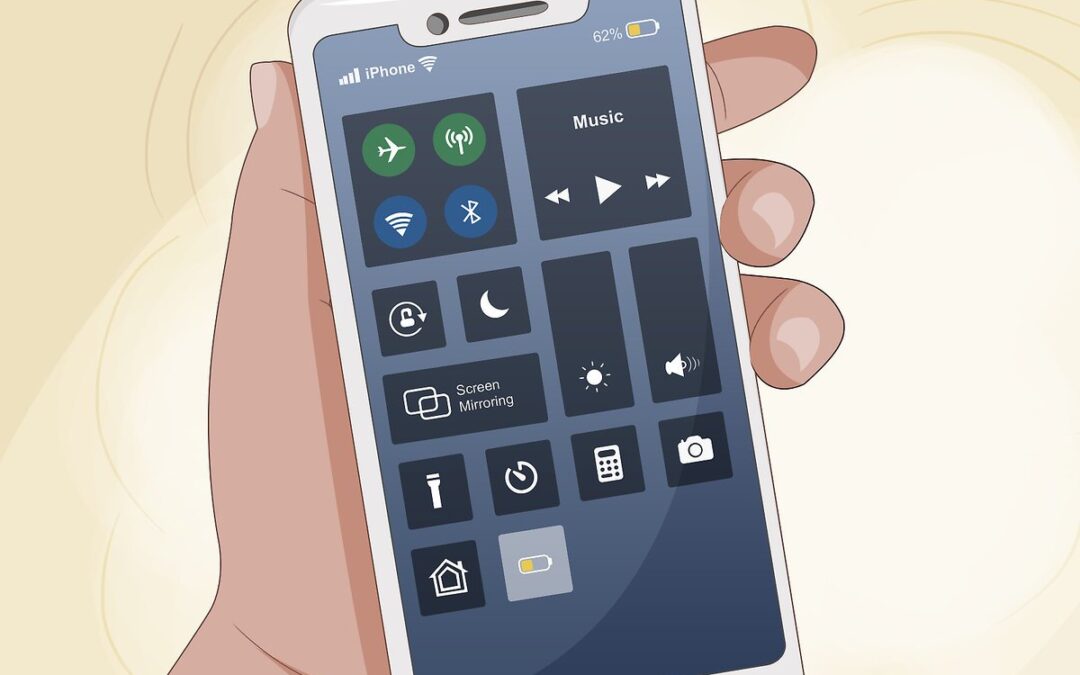
Your phone battery will last for very long years with this option that you must activate
Protect phone Battery One of the reasons many users change their mobile phones is because the battery deteriorates...

Coinplix: Online Money App- a legitimate platform
Coinplix Coinplix is an app that offers opportunities for users to earn money and rewards online. The success of...

Games & office Original Lifetime Serial Numbers
Office and games lifetime serial number If you still don't have Windows, Office, game original activation "serial...

AI videos : 4 best free alternatives for Sora..
AI Video Generators Artificial intelligence is progressing in full swing. Today, AI systems are able to perform...

Hearing songs :4 sites to make money from hearing songs
Hearing Songs Have you ever imagined that you could generate extra income by listening to and evaluating music?...

Payup website :earn money from viewing videos
Payup In the age of modern technology, the ways to earn money online have become diverse and multiple, and among these...

Bear Friends Bubble Shooter game:Make Real Money
Bear Friends Bubble Shooter One of the popular games on smartphones, Bubble Shooter is a great opportunity for people...

Toloka yandex app : earn UP TO $50 per day
Toloka yandex Today we will talk about toloka yandex app which is one of the best profit apps in the world of online...

Sweatcoin: earn money from the walking application
Sweatcoin App Profit from walking refers to converting your daily steps into physical rewards or free offers. In other...

iMacros for Chrome
iMacros This article will introduce you to a fantastic feature iMacros that lets you set up your browser to perform...

Yofan :Discover Secret Profit from Photos
Yofan Yofan is a great platform that enables users to profit by posting photos and taking advantage of AdSense ads....

Apple new MacBook Air with M3 chip
MacBook Air M3 Apple announced its new MacBook Air with the M3 chip, the device with the M3 chip increases by 60...

AMD is upgrading FSR technology to take advantage artificial intelligence.
AMD AMD Chief Technical Officer Mark Papermaster confirmed in an interview with YouTube channel No Priors that the...

Update iOS 17.4.. new features coming to iPhone
IOS 17.4 Apple launched the first beta version of iOS 17.4, which comes with significant updates compared to previous...

Unveiling the First Alternative App Store for the App Store
Setapp The software development company MacPaw has announced the launch of the first alternative App Store for Apple...

Mozilla Redesigns Firefox Interface for Tablets
Mozilla Mozilla is taking great steps towards improving the experience of Firefox users via Android tablets through...

Start my podcast? The Comprehensive Podcast Guide
Podcast Starting your own podcast or so-called "podcast" can be fun, attractive and profitable, but on the other hand,...

Roblox abandons Linux users
Linux Roblox reportedly abandoned Linux users, as the modern version prevents the gaming platform from working with...

Threads intends to roll out API to enhance interaction
Threads The social media app owned by Meta, Threads, plans to make the API widely available to developers by June,...

iPhone 15 in China: unusual decline in prices
iPhone 15 Apple faces an unusually extended drop in iPhone 15 sales in China, prompting sellers to offer price cuts of...

Microsoft enhances Windows 11 with improved AI benefits
WINDOWS 11 Microsoft has begun rolling out a new update to Windows 11 that includes a whole new set of built-in...

China’s smart cars cause concern in Washington
China Smart Cars The United States has announced an investigation into smart cars manufactured in China and other...

X brings live streaming to audio spaces
X :twitter X has announced the availability of live video broadcasting within audio spaces, and audio space users...

WhatsApp launches history search feature in Android
WhatsApp WhatsApp has announced the launch of a history search feature in the Android app starting today in individual...

Honer reveals MagicBook Pro 16
Honor MagicBook Pro 16 Honor unveiled its new MagicBook Pro 16 laptop, with an artificial intelligence feature that...

the most important laptops presented at MWC 2024
MWC 2024 The events of the MWC 2024 Technical Conference were launched in Barcelona, Spain, on 26 February, and...

Honor Ring :a competing smart ring for Samsung ring
Smart RING:HONOR China's Honor announced its intention to launch a future Honor smart ring as well as a vertically...

short videos on YouTube :new and fast way to earn money
Earn from shorts on YouTube Social networks have long been no longer just simple showcases of rosy life. Now they are...

Huawei launches the world’s first tablet to support satellite connectivity
Huawei MatePad Huawei is tireless and continues to prove itself over and over again. We recently saw how they set a...

ClickAsnap : Share photos and start earning money
Clickasnap Clickasnap offers a different way to profit from the Internet. Unlike other sites, you don't earn from...

Honor Magic 6 Pro: Comprehensive review
Honor Magic 6 Pro The Magic 6 Pro is the latest phone from the Chinese company Honor, and this phone has received...

OnePlus Watch reveals its OnePlus Watch 2
OnePlus Watch 2 China's OnePlus Watch 2 has been unveiled with leading specifications during its participation in...

Realme 12 Pro + phone:A Comprehensive review
Realme 12 Pro The new Realme 12 Pro + comes with slight design improvements compared to the previous model, but it...

BYD launches its Yangwang U9 electric supercar
Electric Car :BYD Chinese BYD joined the battle of supercars with its car called the Yangwang U9. The Yangwang U9...

ZTE launches 3D tablet without glasses
ZTE :3D tablet ZTE launched its MWC event 2024 3D tablet without glasses with 5G network support and Nubia Pad 3D...

Instagram develops feature that lets you track friends’ locations
Instagram Track Location Instagram has evolved its "Friends Map" feature, a Meta spokesperson confirmed after...

Google removes YouTube Kids app from smart TVs
Google remove YouTube Kids app!! Google announced its intention to remove the YouTube Kids app from the smart TVs it...

Tecno announces its Camon 30 Premier smartphone
TECNO CAMON 30 Premier Tecno announced the Camon 30 Premier 5G ahead of its launch in the second quarter of this year....

TCL Reveals Cheap New Phones
TCL : New Phones Chinese company TCL has unveiled its two new TCL 50 SE and 50 5G phones of cheap class to suit...

Snapchat intends to unite Spotlight and Stories experience
Snapchat Snapchat is taking a few steps this year to boost growth, including consolidating experience across Stories...
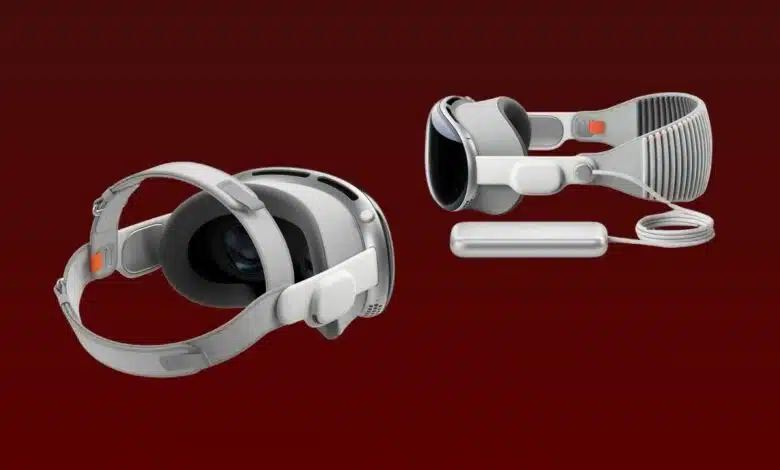
Vision Pro glasses by Apple: Unveiling specifications, benefits, applications, and pricing.
Apple Vision Pro Earlier Friday, Apple announced sales of the redesigned Apple Vision Pro glasses at its U.S. stores....

Helldivers 2 has made its mark through entering the top 20 games in Steam records
Helldivers 2 The recently released Helldivers 2 now not simplest garnered huge attention from the gaming network...

TikTok Rolls Out Apple Music and Spotify Integration Across 163 Countries
Tiktok New Update The latest update from China's TikTok app introduces an exciting feature, enabling users across 163...

Innovative AI Methods for Eye Disease Detection
AI for EYE diseases New AI-Based Software Developed in Russia for Diagnosing Eye Diseases and Visual Impairments (AI...
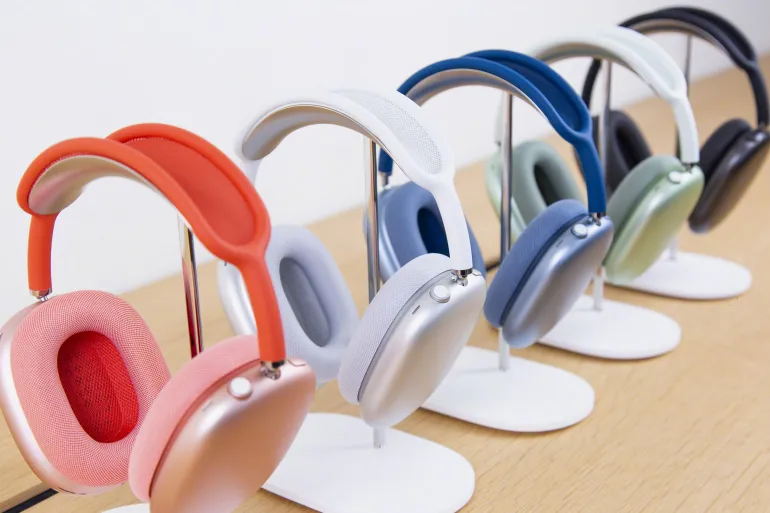
Apple’s AirPods Max 2: Pre-announcement Leaks
Leaked information regarding Apple's anticipated AirPods Max 2 has surfaced on certain internet websites. According...

Minecraft : How is the Game Shaping the Future for Thousands of Children?
Minecraft In the gaming realm, Minecraft emerged as a phenomenon from its inception, captivating audiences across...

Google launches AI model “Gemma”
Gemma: AI Model According to Reuters, on Wednesday, Google unveiled a new open-source AI model named Gemma, which...

Trusting Artificial Intelligence for Children: Exploring Safety and Reliability
Artificial Intelligence for Children In today's digital age, artificial intelligence (AI) is revolutionizing the way...

Sea of Thieves Headed to PlayStation 5 in April: Xbox Reveals Four Upcoming Exclusives for Other Platforms
PlayStation and Nintendo Switch Games Pentiment will hit PS5 this February, Hi-Fi Rush will arrive in March, and...

February’s PlayStation Plus Game Revealed: Check it Out Now!
February PlayStation Plus games Sony Unveils Exciting PlayStation Plus games Catalogue Additions for February 2024:...

Apple: Insights into the Prospects of Future Artificial Intelligence
Apple AI Apple Faces Challenges in 2024: Can New AI Features in iOS 18 Turn the Tide? As various indicators suggest a...

Sora: Introducing a Cutting-Edge AI Model for Text-to-Video Conversion
SORA An OpenAI's pioneering generative AI model, revolutionizes the landscape of video creation by seamlessly...

QuillBot: An Artificial Intelligence Tool for Generating Premium Content
QuillBot QuillBot, a sophisticated AI writing tool, provides users with numerous functionalities such as sentence...

Mubert AI: Unique Music for Your Projects, Free from Copyright Restrictions
Mubert AI is an online platform leveraging artificial intelligence (AI) to generate music and audio free from...

Vectorizer AI :Revolutionizes Image Transformation with Artificial Intelligence
Unlock Your Creativity: Vectorizer AI Transforms Dot Images into Infinite Possibilities with Artificial Intelligence"...

Janitor AI: A Top-Tier AI Persona for Chat Interaction
Janitor AI Discover the Magic of Janitor AI: Your Ultimate Role-Playing Chatbot Powered by Artificial Intelligence...

Challenges in Fable Development: Forzatech Engine Struggles
Fable game The journey of bringing Playground Games' highly anticipated Fable Game to life seems to have hit a...

Fable: There’s speculation indicating the possibility of the game being released in 2025
Fable game Since its announcement by Playground Games in 2020, anticipation for the new Fable game has been steadily...

Mastering Gemini AI: Your Ultimate Guide to Using It as a Virtual Assistant on Android Phones
Gemini Google Google recently rebranded its chatbot program, formerly known as Bard, to Gemini and introduced the...

Discover the Best Tips for Fast and Effortless Honey Gathering in Palworld!
Palworld :Honey gathering In Palworld, indulging your Pals with a variety of treats, from berries to fried eggs, is...

Palworld: Third-Largest Concurrent Player Game in Steam History
Palworld:Third Highest played game The game Achieves Monumental Success with 1.58 Million Concurrent Players on...

Essential Tips for Newcomers to Palworld: Get Started on the Hottest Game of the Year!
Palworld has taken the gaming world by storm, making headlines as the third most concurrently-played game in Steam...

Unveiling Palworld: A Deep Dive into the Ultimate Gaming Adventure
Palworld Dive into the world of Palworld, a captivating crafting and survival game reminiscent of "Pokémon with guns."...

Xiaomi Unveils Groundbreaking Mi TV LUX Transparent Edition: A Futuristic Innovation
Xiaomi Mi TV LUX OLED Xiaomi, known for its groundbreaking mobile devices, also impresses with a diverse product...

LG Unveils Revolutionary Transparent and Wireless TV Innovation
LG Signature T CES 2024 commenced with a bang, featuring LG's groundbreaking reveal: the LG Signature T. This...

Lenovo Unveils Revolutionary Transparent Laptop Innovation
Lenovo transparent laptop The highly anticipated Mobile World Congress (MWC) 2024 is just around the corner, scheduled...

Unlocking Fun and Brainpower: A Comprehensive Guide to Connections NYT Puzzle Game
In a world filled with digital distractions, finding a game that not only entertains but also challenges your...

Earning from Clicks Made Easy: A Comprehensive Guide to SERPCLIX’s Effortless Method
Increase your online income with SerpClix: a trusted platform that generates profit per click If you’re looking for a...

Seamlessly Integrate Gemini AI on iOS: Your Complete Guide
Gemini AI on iOS Discover how to effortlessly incorporate Gemini, the cutting-edge AI developed by Google, into your...

Exploring the Future of Storytelling with Character AI: Revolutionizing Narrative Experiences
In the realm of digital storytelling, a groundbreaking innovation is on the rise – Character AI. This cutting-edge...

Upcoming Samsung Phones to Receive Galaxy AI Update”
Samsung Galaxy:Galaxy AI AI takes center stage in the Galaxy S24 series, with the Ultra model pushing the boundaries...

Top 5 Platforms for Bloggers and Writing Enthusiasts
Blogging: Top 5 Sites to Boost Your Blogging Passion and Profits Blogging has evolved into a significant field,...

professional logo from your Android phone: Best 5 apps
Best apps: canva, logo maker... No need to fret – crafting a quality logo on your mobile phone doesn't require expert...

canva :subscription for lifetime
Canva:lifetime subscription Canva is one of the most powerful and easiest design platforms, as it enables you to...

Don’t trust your mobile camera, because your photos will never be 100% original for this reason
Mobile Camera A few years ago, we were seeing a battle between the three major smartphone brands,...

Maximizing Profits on Telegram: A Beginner’s Guide for Entrepreneurs
Profits On Telegram Over 700 million users worldwide, the platform also has 4 million users paying for free...

Top 10 Commission Marketing Sites
Top 10 Comission Marketing sites Commission marketing has become a high-value, low-risk means of obtaining high...

Sugar Defender | Supplements – Health
Sugar Defender | Supplements - Health Diabetes control needs you to be conscious. Know what causes blood sugar to...

Profit from podcasts step by step
Profit from podcasts step by step The fun of a podcast is that it can be anything you want: a hobby, a side business,...

Final Fantasy 7 Rebirth (PS5)
Final Fantasy 7 Rebirth (PS5) Final Fantasy VII Rebirth is a significant step forward from its predecessor, and it is...

Immortals of Aveum becomes the first game to support frame rate increase techniques on home consoles
Immortals of Aveum Ascendant Studios Studio yesterday , May 25, 2024, announced the official availability of FSR 3...

WWE 2K24 PlayStation 5
WWE 2K24 PlayStation 5 Today we offer you a review of WWE game 2K24 the latest parts of the series which offers with...

Profit from Merch By Amazon :Comprehensive Guide 2024
Merch Bay Amazon Merch by Amazon is the best platform to buy ready-to-wear, and this platform has opened a great...

Fae Farm
Fae Farm The comforting simulation game Fae Farm will allow you to grow crops and make friendsPhoenix Labs' Fae Farm...

Best 7 Classic Mega Drive Android Games
Best Classic Mega Drive Android Games Android is one of the best platforms for playing old games. Not only because of...

Gumrod : Earn more than $2,000 per month from the sale of digital products
Gumrod Did you know that the sale of digital products has been growing exponentially in recent times, as individuals...

Dailymotion website: a perfect alternative for beginners to earn money
Dailymotion Are you looking for an easy and effective way to profit from the Internet? Do you like sharing videos ? If...

FIVERR website: a Comprehensive Guide from registration to withdrawal
FIVERR Today I offer you the way to earn thousands of dollars from the popular website FIVERR to profit from mini...

Adscook : New Platform to manage and optimize your Facebook and Instagram ads
Adscook There is no doubt that social media platforms are a powerful tool for companies of all sizes. However, when it...

Picuki Instagram Viewer : The new instagram challenger
Picuki Instagram Instagram is an app used by millions of people throughout the day. It is an ideal social network for...

Earn money by playing : best 10 Android games
Earn money by Playing If you don't know, there are games where you can get money. In this article we will leave you...

HARPA AI: AI-Powered Chrome Assistant
Harpa AI If you're a regular user of Google Chrome, take a look at Google's new AI extension called Harpa AI because...

Top 4 Android Apps to Learn English with AI
Learn English with AI Learning a new language is not an easy task, and we always welcome any help we can get. If...

EndoPeak | Supplements – Health
EndoPeak Introducing EndoPeak, a natural nutritional complement crafted to deal with sexual fitness concerns in men....

⚡️The Ultimate Keto Meal Plan⚡️ Make $37 AOV With A $1 Sale
The Ultimate Keto Meal Plan The Ultimate Keto Meal Plan presents a comprehensive instructional program meticulously...

Health Bundle : Embracing Holistic Wellness for Body and Mind
Health Bundle Embarking on a journey towards optimal physical and mental health, the Health Bundle offers a digital...

The KlickTipp Partner Program: Excellence or Nothing
KlickTipp Partner Program With so many great opportunities for your digital download products on the internet these...

Project Serenity: Earn 33% Lifetime Commissions
Project Serenity Looking for something new to generate passive income and contribute positively to people’s...

WePointz : Enjoy Playing and Making Money
WePointz In an era of increasing demand for profit from games and withdrawing money via PayPal, WePointz stands out as...

Your phone battery will last for very long years with this option that you must activate
Protect phone Battery One of the reasons many users change their mobile phones is because the battery deteriorates...

Coinplix: Online Money App- a legitimate platform
Coinplix Coinplix is an app that offers opportunities for users to earn money and rewards online. The success of...

Games & office Original Lifetime Serial Numbers
Office and games lifetime serial number If you still don't have Windows, Office, game original activation "serial...

AI videos : 4 best free alternatives for Sora..
AI Video Generators Artificial intelligence is progressing in full swing. Today, AI systems are able to perform...

Hearing songs :4 sites to make money from hearing songs
Hearing Songs Have you ever imagined that you could generate extra income by listening to and evaluating music?...

Payup website :earn money from viewing videos
Payup In the age of modern technology, the ways to earn money online have become diverse and multiple, and among these...

Bear Friends Bubble Shooter game:Make Real Money
Bear Friends Bubble Shooter One of the popular games on smartphones, Bubble Shooter is a great opportunity for people...

Toloka yandex app : earn UP TO $50 per day
Toloka yandex Today we will talk about toloka yandex app which is one of the best profit apps in the world of online...

Sweatcoin: earn money from the walking application
Sweatcoin App Profit from walking refers to converting your daily steps into physical rewards or free offers. In other...

iMacros for Chrome
iMacros This article will introduce you to a fantastic feature iMacros that lets you set up your browser to perform...

Yofan :Discover Secret Profit from Photos
Yofan Yofan is a great platform that enables users to profit by posting photos and taking advantage of AdSense ads....

Apple new MacBook Air with M3 chip
MacBook Air M3 Apple announced its new MacBook Air with the M3 chip, the device with the M3 chip increases by 60...

AMD is upgrading FSR technology to take advantage artificial intelligence.
AMD AMD Chief Technical Officer Mark Papermaster confirmed in an interview with YouTube channel No Priors that the...

Update iOS 17.4.. new features coming to iPhone
IOS 17.4 Apple launched the first beta version of iOS 17.4, which comes with significant updates compared to previous...

Unveiling the First Alternative App Store for the App Store
Setapp The software development company MacPaw has announced the launch of the first alternative App Store for Apple...

Mozilla Redesigns Firefox Interface for Tablets
Mozilla Mozilla is taking great steps towards improving the experience of Firefox users via Android tablets through...

Start my podcast? The Comprehensive Podcast Guide
Podcast Starting your own podcast or so-called "podcast" can be fun, attractive and profitable, but on the other hand,...

Roblox abandons Linux users
Linux Roblox reportedly abandoned Linux users, as the modern version prevents the gaming platform from working with...

Threads intends to roll out API to enhance interaction
Threads The social media app owned by Meta, Threads, plans to make the API widely available to developers by June,...

iPhone 15 in China: unusual decline in prices
iPhone 15 Apple faces an unusually extended drop in iPhone 15 sales in China, prompting sellers to offer price cuts of...

Microsoft enhances Windows 11 with improved AI benefits
WINDOWS 11 Microsoft has begun rolling out a new update to Windows 11 that includes a whole new set of built-in...

China’s smart cars cause concern in Washington
China Smart Cars The United States has announced an investigation into smart cars manufactured in China and other...

X brings live streaming to audio spaces
X :twitter X has announced the availability of live video broadcasting within audio spaces, and audio space users...

WhatsApp launches history search feature in Android
WhatsApp WhatsApp has announced the launch of a history search feature in the Android app starting today in individual...

Honer reveals MagicBook Pro 16
Honor MagicBook Pro 16 Honor unveiled its new MagicBook Pro 16 laptop, with an artificial intelligence feature that...

the most important laptops presented at MWC 2024
MWC 2024 The events of the MWC 2024 Technical Conference were launched in Barcelona, Spain, on 26 February, and...

Honor Ring :a competing smart ring for Samsung ring
Smart RING:HONOR China's Honor announced its intention to launch a future Honor smart ring as well as a vertically...

short videos on YouTube :new and fast way to earn money
Earn from shorts on YouTube Social networks have long been no longer just simple showcases of rosy life. Now they are...

Huawei launches the world’s first tablet to support satellite connectivity
Huawei MatePad Huawei is tireless and continues to prove itself over and over again. We recently saw how they set a...

ClickAsnap : Share photos and start earning money
Clickasnap Clickasnap offers a different way to profit from the Internet. Unlike other sites, you don't earn from...

Honor Magic 6 Pro: Comprehensive review
Honor Magic 6 Pro The Magic 6 Pro is the latest phone from the Chinese company Honor, and this phone has received...

OnePlus Watch reveals its OnePlus Watch 2
OnePlus Watch 2 China's OnePlus Watch 2 has been unveiled with leading specifications during its participation in...

Realme 12 Pro + phone:A Comprehensive review
Realme 12 Pro The new Realme 12 Pro + comes with slight design improvements compared to the previous model, but it...

BYD launches its Yangwang U9 electric supercar
Electric Car :BYD Chinese BYD joined the battle of supercars with its car called the Yangwang U9. The Yangwang U9...

ZTE launches 3D tablet without glasses
ZTE :3D tablet ZTE launched its MWC event 2024 3D tablet without glasses with 5G network support and Nubia Pad 3D...

Instagram develops feature that lets you track friends’ locations
Instagram Track Location Instagram has evolved its "Friends Map" feature, a Meta spokesperson confirmed after...

Google removes YouTube Kids app from smart TVs
Google remove YouTube Kids app!! Google announced its intention to remove the YouTube Kids app from the smart TVs it...

Tecno announces its Camon 30 Premier smartphone
TECNO CAMON 30 Premier Tecno announced the Camon 30 Premier 5G ahead of its launch in the second quarter of this year....

TCL Reveals Cheap New Phones
TCL : New Phones Chinese company TCL has unveiled its two new TCL 50 SE and 50 5G phones of cheap class to suit...

Snapchat intends to unite Spotlight and Stories experience
Snapchat Snapchat is taking a few steps this year to boost growth, including consolidating experience across Stories...

Vision Pro glasses by Apple: Unveiling specifications, benefits, applications, and pricing.
Apple Vision Pro Earlier Friday, Apple announced sales of the redesigned Apple Vision Pro glasses at its U.S. stores....

Helldivers 2 has made its mark through entering the top 20 games in Steam records
Helldivers 2 The recently released Helldivers 2 now not simplest garnered huge attention from the gaming network...

TikTok Rolls Out Apple Music and Spotify Integration Across 163 Countries
Tiktok New Update The latest update from China's TikTok app introduces an exciting feature, enabling users across 163...

Innovative AI Methods for Eye Disease Detection
AI for EYE diseases New AI-Based Software Developed in Russia for Diagnosing Eye Diseases and Visual Impairments (AI...

Apple’s AirPods Max 2: Pre-announcement Leaks
Leaked information regarding Apple's anticipated AirPods Max 2 has surfaced on certain internet websites. According...

Minecraft : How is the Game Shaping the Future for Thousands of Children?
Minecraft In the gaming realm, Minecraft emerged as a phenomenon from its inception, captivating audiences across...

Google launches AI model “Gemma”
Gemma: AI Model According to Reuters, on Wednesday, Google unveiled a new open-source AI model named Gemma, which...

Trusting Artificial Intelligence for Children: Exploring Safety and Reliability
Artificial Intelligence for Children In today's digital age, artificial intelligence (AI) is revolutionizing the way...

Sea of Thieves Headed to PlayStation 5 in April: Xbox Reveals Four Upcoming Exclusives for Other Platforms
PlayStation and Nintendo Switch Games Pentiment will hit PS5 this February, Hi-Fi Rush will arrive in March, and...

February’s PlayStation Plus Game Revealed: Check it Out Now!
February PlayStation Plus games Sony Unveils Exciting PlayStation Plus games Catalogue Additions for February 2024:...

Apple: Insights into the Prospects of Future Artificial Intelligence
Apple AI Apple Faces Challenges in 2024: Can New AI Features in iOS 18 Turn the Tide? As various indicators suggest a...

Sora: Introducing a Cutting-Edge AI Model for Text-to-Video Conversion
SORA An OpenAI's pioneering generative AI model, revolutionizes the landscape of video creation by seamlessly...

QuillBot: An Artificial Intelligence Tool for Generating Premium Content
QuillBot QuillBot, a sophisticated AI writing tool, provides users with numerous functionalities such as sentence...

Mubert AI: Unique Music for Your Projects, Free from Copyright Restrictions
Mubert AI is an online platform leveraging artificial intelligence (AI) to generate music and audio free from...

Vectorizer AI :Revolutionizes Image Transformation with Artificial Intelligence
Unlock Your Creativity: Vectorizer AI Transforms Dot Images into Infinite Possibilities with Artificial Intelligence"...

Janitor AI: A Top-Tier AI Persona for Chat Interaction
Janitor AI Discover the Magic of Janitor AI: Your Ultimate Role-Playing Chatbot Powered by Artificial Intelligence...

Challenges in Fable Development: Forzatech Engine Struggles
Fable game The journey of bringing Playground Games' highly anticipated Fable Game to life seems to have hit a...

Fable: There’s speculation indicating the possibility of the game being released in 2025
Fable game Since its announcement by Playground Games in 2020, anticipation for the new Fable game has been steadily...

Mastering Gemini AI: Your Ultimate Guide to Using It as a Virtual Assistant on Android Phones
Gemini Google Google recently rebranded its chatbot program, formerly known as Bard, to Gemini and introduced the...

Discover the Best Tips for Fast and Effortless Honey Gathering in Palworld!
Palworld :Honey gathering In Palworld, indulging your Pals with a variety of treats, from berries to fried eggs, is...

Palworld: Third-Largest Concurrent Player Game in Steam History
Palworld:Third Highest played game The game Achieves Monumental Success with 1.58 Million Concurrent Players on...

Essential Tips for Newcomers to Palworld: Get Started on the Hottest Game of the Year!
Palworld has taken the gaming world by storm, making headlines as the third most concurrently-played game in Steam...

Unveiling Palworld: A Deep Dive into the Ultimate Gaming Adventure
Palworld Dive into the world of Palworld, a captivating crafting and survival game reminiscent of "Pokémon with guns."...

Xiaomi Unveils Groundbreaking Mi TV LUX Transparent Edition: A Futuristic Innovation
Xiaomi Mi TV LUX OLED Xiaomi, known for its groundbreaking mobile devices, also impresses with a diverse product...

LG Unveils Revolutionary Transparent and Wireless TV Innovation
LG Signature T CES 2024 commenced with a bang, featuring LG's groundbreaking reveal: the LG Signature T. This...

Lenovo Unveils Revolutionary Transparent Laptop Innovation
Lenovo transparent laptop The highly anticipated Mobile World Congress (MWC) 2024 is just around the corner, scheduled...

Unlocking Fun and Brainpower: A Comprehensive Guide to Connections NYT Puzzle Game
In a world filled with digital distractions, finding a game that not only entertains but also challenges your...

Earning from Clicks Made Easy: A Comprehensive Guide to SERPCLIX’s Effortless Method
Increase your online income with SerpClix: a trusted platform that generates profit per click If you’re looking for a...

Seamlessly Integrate Gemini AI on iOS: Your Complete Guide
Gemini AI on iOS Discover how to effortlessly incorporate Gemini, the cutting-edge AI developed by Google, into your...

Exploring the Future of Storytelling with Character AI: Revolutionizing Narrative Experiences
In the realm of digital storytelling, a groundbreaking innovation is on the rise – Character AI. This cutting-edge...

Upcoming Samsung Phones to Receive Galaxy AI Update”
Samsung Galaxy:Galaxy AI AI takes center stage in the Galaxy S24 series, with the Ultra model pushing the boundaries...

Top 5 Platforms for Bloggers and Writing Enthusiasts
Blogging: Top 5 Sites to Boost Your Blogging Passion and Profits Blogging has evolved into a significant field,...

professional logo from your Android phone: Best 5 apps
Best apps: canva, logo maker... No need to fret – crafting a quality logo on your mobile phone doesn't require expert...

canva :subscription for lifetime
Canva:lifetime subscription Canva is one of the most powerful and easiest design platforms, as it enables you to...
